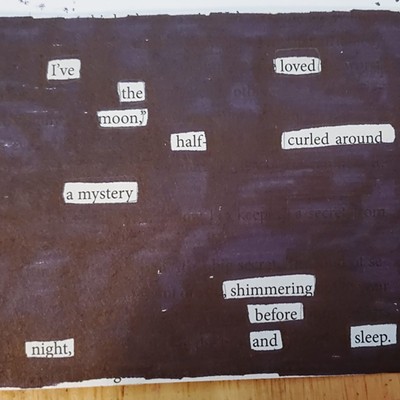[
{
"name": "500x250 Ad",
"insertPoint": "5",
"component": "15667920",
"parentWrapperClass": "",
"requiredCountToDisplay": "1"
}
]
Work affects people's health in many ways. Consider, for example, the increasingly clear connection between sedentary jobs and obesity, or the benefits people get from forming bonds with their coworkers.
But the impacts can vary from job to job; a CEO works in a much different environment, with different hazards and stresses, than a factory worker. Wages matter, too, since they often determine where people live and their ability to access health care or nutritious food.
Unions, sociologists, activists, and occupational health professionals are taking a growing interest in the relationship between low-wage work and people's health. In Syracuse, the Occupational Health Clinical Center is leading a project to identify those connections through in-depth conversations and workshops with low-wage workers from the region. The center is part of a state-established network of regional occupational health clinics
Project researchers are finding that low-wage employees such as restaurant and retail staff, custodial workers, and certified nursing assistants often work through serious pain, that they don't get treatment for on-the-job injuries, that they frequently experience wage theft, that they are given unworkable or exhausting schedules, and that they feel like they aren't respected. The findings are part of a 2015 report, "Healthy Work in Syracuse? Conversations with Low-Wage Workers."
"That's one of the biggest stories out of this: low-wage work is also unhealthy work because it's connected not just with the poverty that low wages bring, but the types of employment," says the report's lead author, Jeanette Zoeckler, program manager with the Occupational Health Clinical Center.
Project leaders hope to ultimately make short-, medium-, and long-term policy recommendations to better address job-related health issues that affect low-wage workers, she says.
Zoeckler discussed her findings recently at the Workers United Hall on East Avenue during an event organized by Finger Lakes Occupational Health Services, which is also part of the State Occupational Health Clinic Network. In a recent interview, Zoeckler talked about the project and its findings. An edited version of the conversation follows.
CITY: How does this project help address worker health?
Zoeckler: We are trying to assess the needs and characterize the needs of various low-wage workers. There's a lot we don't know about that. We knew about factories because unions would get together and do health and safety investigations; there would be concerns about conditions inside of physical plants because they were dangerous.
As we've moved away from industrialization, what we don't know is the kind of jobs that exist now, what are their dangers? What are the things that people face on a daily basis? They don't seem to be the big moving parts that are in a huge factory operation. It's a different kind of health threat.
As we're with workers, we're able to help them know more about their rights and know more about their occupations and their safety.
How do low-wage jobs affect workers' health?
It's in two ways. One, that low wages, in general, are a threat to people's health, for obvious reasons: buying food, access to health care. Low wages put people in poverty; people can't live on them and sustain their health.
But then the second way, and the way we're trying to bring forward, is that the working conditions themselves threaten people's health on the job. The work itself is dangerous.
How big is the wage theft problem? What do workers describe?
Almost half have reported at least one incident of wage theft.
People are asked to come in early or stay late off the clock. The manager will pressure them because they've got to make some kind of number, or else [they're] going to have to fire people. So they're under threat.
Sometimes people are required to pay for their own safety equipment, but that isn't supposed to happen. Also, they often can be paid less than they agreed to work for. And a lot of times they feel like they can't say anything, either, because, well, you're lucky you have a job.
A lot of people told us they're paid late, and that costs people. You can imagine their own bills are late or they can't pay their rent or whatever. Being paid under the table for overtime — and that ends up not being the overtime rate — is another very common one.
Sometimes they know it and realize they're being taken advantage of, other times they figure it's just part of the job: I have to do it or I might get fired.
What most surprised the team? What have you heard from workers that you didn't expect?
Somewhere between 30 percent and 38 percent — we asked it twice and got two different numbers — of people experienced symptoms they think are from their job, some kind of pain or symptoms. But they...aren't seeking medical care yet, and maybe they never will.
At the end of the first survey we asked them if there was one thing you could change about your job, what would it be? And there were wage issues and hours, but the number one issue was needing to be respected in the workplace.
We were expecting them to say more about health issues or other sorts of problems, especially after we just asked them 99 questions about health and their access to health.
They were like, "We know our jobs are not glamorous, we're not making a lot of money, but we just need to be treated like human beings." And that discrimination and lack of respect was powerful.
Are they talking about respect from supervisors and coworkers, or do they include customers and clients?
It's from every direction. They feel very often the job is invisible to the society around them; they're not really looked at and considered as a human being.
A lot of times it'll be something around their families; they're not given time off because they're apparently not important enough if their child is sick, whereas the higher rungs of the ladder in the workplace, all of that of course is normal.
Also, the way that they're spoken to really bothers them. They report a lot of condescension.
These people work hard, and the public often seems unsympathetic.
They make $11 an hour, they have two kids, they can't pay everything, they don't want to resort to the government, but "What are we supposed to do?" they say.
Here they are, sometimes working two jobs or just trying to go to school and work. There are lots who are too exhausted to even talk to me, they're too worn down. It's not everyone who can just pull themselves up by their bootstraps; there are some people that the system is so set against that it's not even possible.
There have always been lousy jobs and, probably, there always will be. But we're trying to have a civilized society in which people's health and dignity can be maintained, so that their worth as workers could be strong enough so they could live and not have this exhaustion and this disempowerment.
Speaking of...
-

Nani's Kitchen workers unionized. Why don't more restaurants?
Jun 1, 2021 -

Not all gig workers want proposed protections
Feb 6, 2020 -
County still at odds with its largest union
Oct 26, 2016 - More »
Latest in News
More by Jeremy Moule
-

ROCHESTER TEN
ANNETTE RAMOSAug 1, 2023 - More »





